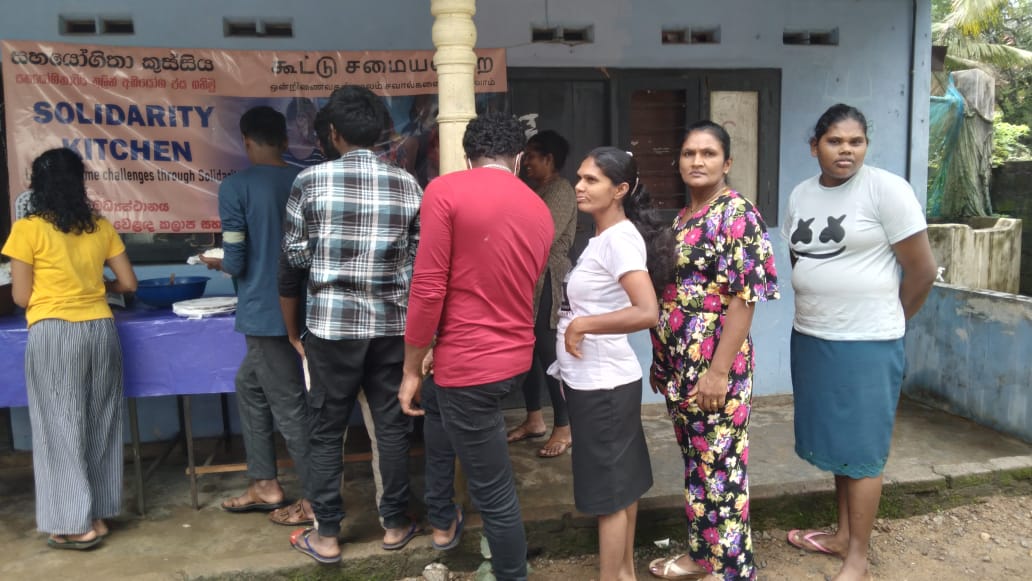
Labour rights organisations urge brands to take responsibility for their workers in Sri Lanka
A new research brief published by Clean Clothes Campaign (CCC) reveals that workers in Sri Lanka have not been receiving the full Emergency Relief Allowances meant to alleviate their desperate situation in the wake of the current severe economic crisis in the country. The brief calls on major brands sourcing from Sri Lanka to take responsibility for their workers’ survival as well as their right to organise and to decent labour standards.
The financial and political crisis that started over a year ago in Sri Lanka and led to the ousting of the president, has put an immense burden on the about 350,000 garment workers in the country who were already living on subsistence incomes. Instead of making workers and their representatives part of the solution, the new Sri Lankan government is ignoring its obligation to engage in social dialogue with unions and using draconian emergency laws to crack down on protesters.
Research published today shows that most workers have also not been receiving the Emergency Relief Allowances (ERA) of 10,000 LKR (27 USD) on top of their monthly wages. The ERA was instituted in response to requests from the unions to counter the devastating effects of currency devaluation and rampant inflation on workers’ livelihoods. Workers have received far less than the ERA, or nothing, and bonuses have only been paid out under certain conditions such as perfect attendance. Several attempts by organisations in the CCC network to engage with the main garment brands sourcing from the country urging them to take action to safeguard the livelihoods of the workers that enable their profits have had little effect thus far.
Garment brands which produce in Sri Lanka include PVH (Calvin Klein, Tommy Hilfiger), Gap, Nike, Victoria's Secret, Amazon, Asos, Next, Marks & Spencer, Patagonia, Columbia Sportswear, Ralph Lauren and others. This brief calls upon these brands to ensure that the workers in their Sri Lankan supply chains are paid the ERA unconditionally and that their right to organise and to have decent working conditions in line with the Conventions of the International Labour Organisation are safeguarded.
Anton Marcus, joint secretary of the Free Trade Zones & General Services Employees’ Union, the largest union representing garment workers in the country, said: “Brands have a responsibility to the workers that enable their profits. They must ensure that the factories they source from pay their workers the 10,000 LKR (US$ 27) Emergency Relief Allowance. If factories are not able to do so, then brands should step in and contribute financially to make it possible. The Sri Lankan garment workers have contributed to making these brands rich, the least these brands can do is to ensure their workers get through this crisis.”
Background
The organisations involved in the preparation of this brief are: the Free Trade Zones and General Service Employees Union, War on Want, Maquila Solidarity Network, and the International Union Educational League. Earlier statements on the crisis in Sri Lanka by the organisations that worked on this brief include:
1. Statement on the closure of two Sri Lankan factories amid severe financial crisis. April 2022;
2. Emergency relief needed for Sri Lanka's economic crisis. July 2022;